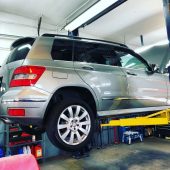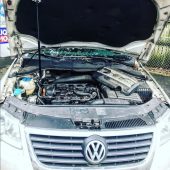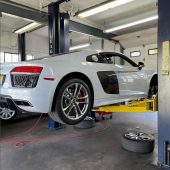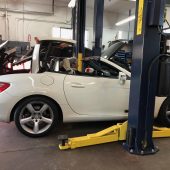You have been driving your car for a very long time now. It has been with you through many life experiences and you are not ready to give it up. Or you may own a classic car that you have been repairing with your father or friends for a long time and it is now drivable. These old and reliable cars are most likely going to require more maintenance than that of newer cars. One of the parts you should always have in mind when you are doing regular maintenance and routine check-ups is the carburetor. This part of your car plays a key role in your car giving you a smooth and safe ride.
What is the Carburetor?
In order for your car to run, it requires a specific mixture of air and fuel. This mixture is going to get your car moving and keep it in motion once it has begun to move. Ultimately, the combination of air and fuel is what powers your car after they have been burned together in the engine’s metal cylinders.
The actual mixture of the air and fuel depends on a couple of things, such as how fast you are going, how long the car has been on, and a few other factors. The device that is used to create this power is called the carburetor. It is responsible for creating the perfect mixture of air and fuel to keep your car moving. Not all car have carburetors, as they have been phased out ever since the fuel injector was invented. The carburetor is now mainly only found in older cars.
Cleaning the Carburetor
One way that you can maintain the carburetor is by ensuring it is clean at all times. Due to the fact that air and fuel are constantly flowing through it, any leftover impurities from the fuel may get stuck in the carburetor. With impurities or grime building up inside the carburetor, it will not function as properly as it should. The particles that are not supposed to be in the carburetor will through the air and fuel mixture off balance and can ultimately cause your car to run irregularly. If you do not regularly clean the carburetor, your car will let you know it is dirty because it will cough, backfire, or have low power when accelerating.
There are specific tools that you will need to ensure that the carburetor receives a good cleaning. You will need a crosshead screwdriver or a flathead screwdriver, a clear flexible hose, long nose pliers, a carburetor cleaning tool and solution, and some form of compressed air. You will need to completely remove the carburetor from the engine in order to give it a proper cleaning. Due to the fact that each carburetor is different, the car manual will be able to guide you in how you are supposed to safely remove it. You will then want to give the carburetor a good scrubbing. Get into all of the openings where the air and fuel should be able to flow smoothly through. In order to make sure you have successfully cleaned out the carburetor, running the compressed air through will indicate there are no blocked airways.
Maintaining the Carburetor
If you drive an older car but feel that you are not all that handy, it is perfectly fine to take your car into a professional. This is actually recommended, because it will reduce the chance and likelihood that the carburetor or any other parts will be damaged while trying to remove the piece for cleaning.
How We Can Help
At Lincoln Ave Auto we have dealt with Issues Related to all European Car issues? Our team is experienced in diagnosing and repairing this issue. We also have a wealth of experience with other problems that occur in European Autos.
At Lincoln Ave Auto, we proudly serve a diverse range of clients in Bergen County, NJ who drive European imports such as Volkswagen, Land Rover, BMW, Audi, Mercedes, MINI, Mini Cooper, and Porsche. Our focus of expertise is precise in order to provide the highest quality specialized services to our clients, savings of up to 20%, making us one of New Jersey’s leading European automotive specialists.
Get the proper maintenance and service for your European Auto at Lincoln Ave Auto your European and German Auto specialists. Call for an appointment today. Tel: 973-427-4318








